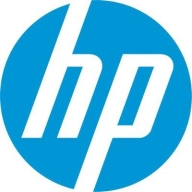


Find out what your peers are saying about CrowdStrike, Microsoft, SentinelOne and others in Endpoint Protection Platform (EPP).
| Product | Mindshare (%) |
|---|---|
| HP Wolf Security | 5.0% |
| Microsoft Defender for Endpoint | 7.8% |
| CrowdStrike Falcon | 6.6% |
| Other | 80.6% |
| Product | Mindshare (%) |
|---|---|
| Menlo Secure | 1.9% |
| Wiz Code | 30.5% |
| Seemplicity | 17.8% |
| Other | 49.8% |

| Company Size | Count |
|---|---|
| Small Business | 44 |
| Midsize Enterprise | 20 |
| Large Enterprise | 47 |
| Company Size | Count |
|---|---|
| Small Business | 3 |
| Large Enterprise | 5 |
Cortex XDR by Palo Alto Networks provides advanced threat detection with AI-driven endpoint protection and seamless integration, ensuring multi-layered security and automatic threat response.
Cortex XDR is designed to safeguard endpoints against malware and suspicious activities. It offers advanced threat detection and response capabilities using behavioral analysis, AI, and machine learning. It seamlessly integrates with security infrastructures, providing endpoint security, firewall integration, and enhanced visibility in both cloud-based and on-premises environments.
What are the key features of Cortex XDR?Organizations in diverse sectors deploy Cortex XDR to protect against malware, leveraging its advanced threat detection capabilities. Its integration with existing security infrastructures appeals to those seeking comprehensive protection in both cloud and on-premises environments, providing enhanced visibility and threat intelligence.
HP Wolf Security is a comprehensive cybersecurity solution that bolsters your organization's cyber-resilience on multiple fronts. With its full-stack security approach, it ensures layered protection from hardware to the cloud, providing a robust defense against cyber threats. HP Wolf Security introduces endpoint isolation, a cutting-edge feature that effectively halts threats that may go unnoticed by Next-Generation Antivirus (NGAV) and Endpoint Detection and Response (EDR) systems. Moreover, it extends its security coverage to printers, equipping them with advanced detection and self-healing capabilities to further safeguard your digital ecosystem. This integrated solution streamlines IT and security risk management, resulting in fewer alerts and false positives, and reduces the time and effort required for endpoint incident analysis and remediation. Notably, HP Wolf Security prioritizes productivity, allowing you to manage risk without disrupting the user experience, enabling worry-free work from anywhere, and offering rapid IT disaster recovery at scale.
Menlo Security Secure Application Access
Menlo Security Secure Application Access makes zero trust access easy, giving users secure connectivity to private applications, including web and legacy applications. At the core of Secure Application Access is the Menlo Secure Cloud Browser, which fetches, secures and delivers the content for users.
In addition to providing simple-to-deploy, clientless ZTA, Secure Application Access and the Menlo Secure Cloud Browser protect applications from attacks such as session hijacking, cookie manipulation, and other tactics that employ protocol manipulation.
Secure Application Access protects applications from Internet threats and provides granular controls for added protection of the application and associated data. These security controls include Read-only/Read-write, Upload/download, Copy/paste, AV scanning, Sandboxing, and Data Loss Prevention.
Last Mile Data Protection
Menlo Last-Mile Data Protection identifies and prevents sensitive data from leaving your company by meticulously inspecting all file uploads and user input across browsing sessions. Leveraging the Secure Cloud Browser, users are protected from the internet and you can protect your organization from data loss with comprehensive traffic monitoring and controls. This approach addresses the growing concerns surrounding data leakage in the age of AI tools like ChatGPT.
By identifying sensitive data through file types, regular expressions, or predefined libraries, Menlo Last-Mile Data Protection empowers security teams to regulate data input into AI platforms and prevent unauthorized uploads. This capability provides crucial protection for intellectual property, PII, and other confidential information.
The solution leverages the Menlo Cloud Security Platform's visibility and control over traffic to reliably detect and prevent data leaks originating from both browser submission forms and non-browser traffic. With the ability to inspect encrypted web traffic, Menlo Last-Mile Data Protection enforces DLP policies consistently across all users and devices, ensuring comprehensive data protection.
We monitor all Endpoint Protection Platform (EPP) reviews to prevent fraudulent reviews and keep review quality high. We do not post reviews by company employees or direct competitors. We validate each review for authenticity via cross-reference with LinkedIn, and personal follow-up with the reviewer when necessary.